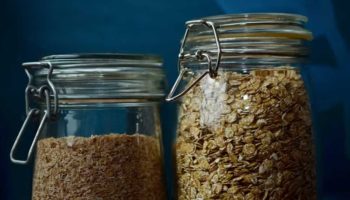One of the most widely used plants in the kitchen, for the rich flavor it adds to preparations, is basil. What you should keep in mind so that this plant is always green and radiant is that there are pests and diseases that could attack it.
Yellowed, pitted and damaged basil leaves? Because it is a very delicate plant, it can easily be attacked by insects. Beetles, thrips, whiteflies and aphids are among the most common pests that can attack basil. However, it is possible to treat the leaves with a natural ingredient to preserve them intact and healthy. But what is this valuable ingredient?
Basil insect, throw in this ingredient: never again punctured and ruined leaves!
The basil seedling can be treated with a natural, effective and safe ingredient. This is neem oil, which is made from the Indian neem tree. Although neem oil has a low environmental impact, it is very effective in eliminating destructive insects and preventing their reproduction. When used as a spray, it will smother pests on contact and prevent eggs from hatching.
Neem products, also known as azadirachtin, are available as concentrates for use in the garden. Neem oil is safe to use on edible plants, but the amount used must be measured carefully. The right amount applied to plants will keep pests away. However, overdosing instead will kill the plants. Yes, too much neem oil can damage plants as it creates a coating on the surface of the leaves. Due to the heat of the sun, excess neem oil will cause the leaves to burn.
Therefore, to use neem oil, it is necessary to dilute it with water. For the specific proportions of water to neem concentrate, one must refer to the product label. In addition to concentrated products that need to be diluted, neem oil is also available in ready-to-use portable spray bottles. Once sprayed, neem oil is effective for at least 3-4 days, but it will lose some of its potency with each passing day and will become completely ineffective 1 week after application.
Neem oil, only then you can get maximum effectiveness on your plants
To get the maximum effectiveness of neem oil, you need to remember two things when applying it to your plants. First, you should always apply neem oil in the early evening if possible. Late afternoon is fine, but you will run less risk if you apply neem oil once the sun has started to set. The reason is simple: neem oil is an oil, and if you apply it in the morning or afternoon, the sun’s rays will cause burns and sunburn on the foliage.
Second, you have to be thorough in your application and cover the leaves with the oil, paying special attention to the underside of the leaves, which is the area where pests tend to hide. The neem oil you spray on plants will not kill most insects on contact, but it will interrupt their ability to feed, mutate or even reproduce.
This is why it is so important to cover plants with a thin layer of neem oil spray. On the one hand, covering insects with neem oil will kill some of them. On the other, neem oil will only work if the insects feed on an area of the plant you sprayed. If you lose parts of your plant during the application process, there is a good chance that your infestation will persist.
This product is safe to use not only on food plants but also on ornamental plants and can be sprayed on herbs and vegetables until harvest time. Simply wash them completely before eating them. However, it is still recommended to both not spray neem oil on vegetables that will be eaten the next day.



